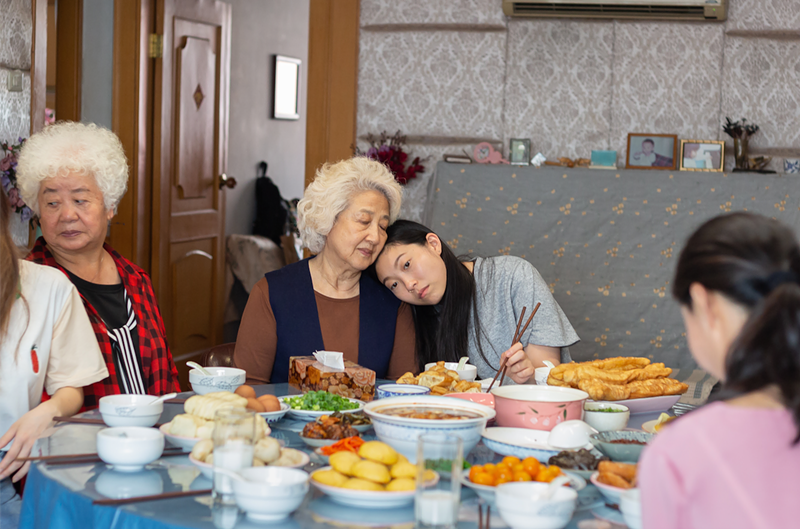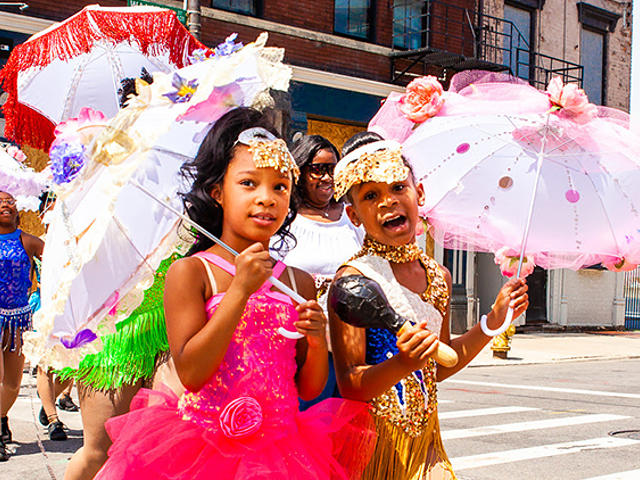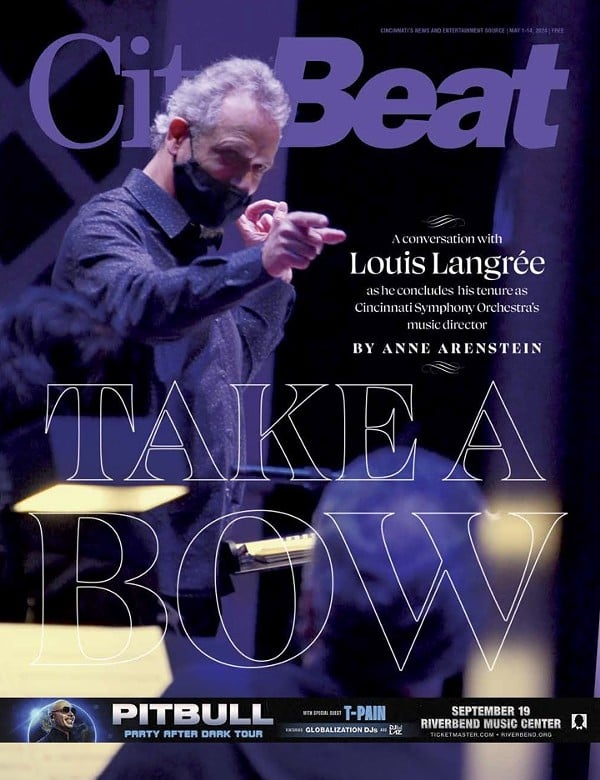During the week, I would call her after I got off work, usually while I was preparing dinner for myself. Food was a huge part of my upbringing and I learned to cook from her. As I cooked she would tell me family history or little anecdotes from her life that she had probably shared with me a million times before. I told myself that the act of retelling the stories would take her mind off of her deteriorating state, but that wasn’t what mattered to me; I needed to hang onto them and her.
The day she died I missed my check-in with her. I might have worked late and grabbed a quick bite without going home or maybe I went to a movie with a friend. But I received a call from my mother the next morning letting me know Nana had passed in the early morning. I was wracked with guilt and grief.
While watching writer-director Lulu Wang’s new film The Farewell, I saw some aspects of my younger self in Billi, the character played by Awkwafina. Living in a small New York City apartment, she struggles to get by financially, waiting to hear about a fellowship that will tide her over. She’s hustling to pursue her creative-based version of the American Dream — the cool independent spirit — but she’s not above going to her parent’s apartment to wash her clothes.
Similar to my situation, she talks to her grandmother on the phone. In her case, her Nai Nai is an ocean away in Mainland China, but they communicate as Billi walks the busy streets of NYC. There is a familiar routine in the conversation. They joke and express their love for each other in all sorts of ways. It is as if they are physically together, not just in each other’s ear across the divide.
Culture would seem to separate my memory of talking to my grandmother toward the end of her life and Billi’s dialogue with her Nai Nai. Southern black folks and Asians, one might think, would be worlds apart. But when Billi learns that her grandmother has cancer and is expected to die soon, the anticipation of grief is the same. She wonders why she is so far away from her loved one.
Billi is also confounded by the notion that her parents attempted to withhold the news from her. To make matters worse, the family plans a fake get together — the hasty marriage of Billi’s cousin — so everyone can see Nai Nai one last time. Once she learns of the scheme, Billi maxes out her credit cards to go. However, no one wants her there because they want to keep the diagnosis a secret from the grandmother. They want her to remain happy and carefree for as long as possible and the family knows that Billi, having been raised in Western culture, will not be able to keep the secret. But none of them are as adept as they imagine themselves to be at maintaining the ruse. A pall hangs over every gathering before the phony nuptials.
It is truly hard to say goodbye, especially when you know the end is not some far-off point along the horizon, but close enough to cross in a step or two.
Awkwafina has thus far been known for her scene-stealing comedic turns last year in Ocean’s Eight and Crazy Rich Asians. In Billi, she recognizes the need to strike a balance between sadness and a willingness to engage with her Nai Nai, to enjoy the preciousness of the moments still available.
My Nana and I were doing the same thing those last few weeks every time I called her. I wondered, at the end of each call, if that conversation would be the last. I sometimes wish I had taped her retellings of those stories so that I could have savored the details and history. But what truly mattered was the sparkle in her voice, the laughter we shared and how that time belonged to just the two of us.
Awkwafina and The Farewell reflect those sentiments beautifully in every frame. (In theaters) (PG) Grade: A






